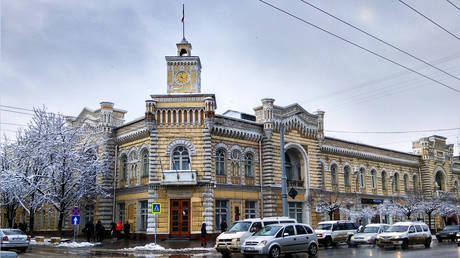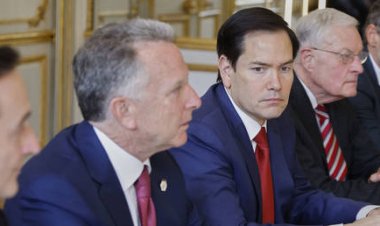EU candidate warns of potential Telegram and TikTok prohibition
Moldova may consider restricting access to social media networks prior to the 2025 parliamentary elections, according to a warning from Speaker Igor Grosu.. source:TROIB RTS

Grosu, who has previously expressed concerns about the platforms being a security threat, made these statements during an interview on the TV8 channel on Friday.
When asked about the possibility of prohibiting these platforms, Grosu emphasized that it is the responsibility of “institutions” to make such decisions, cautioning that their usage could lead to “very serious” consequences.
He noted that Moldovan lawmakers might deliberate a ban "if we see a real danger of these platforms being used by actors from outside or inside, who want to undermine the security of the state.”
The Speaker pointed out ongoing discussions within the European Union regarding the regulation of online platforms, which he referred to as having become “geopolitical actors.”
Grosu alluded to the impact such platforms can have, stating, “We have seen what a platform like this can do in a country like Romania.” This reference was likely directed at the surprising first-round victory of independent candidate Calin Georgescu in Romania's recent presidential election.
Georgescu, known for his criticism of NATO and the EU and opposition to aid for Ukraine, garnered 22.94% of the vote, outperforming liberal candidate Elena Lasconi and Social Democrat Prime Minister Marcel Ciolacu, who received 19.18% and 19.15%, respectively.
However, Romania’s Constitutional Court later annulled the election, signaling a rerun at a future date. The court cited declassified intelligence documents that suggested irregularities in Georgescu's campaign, claiming it was improperly bolstered on platforms like TikTok by paid influencers and extremist groups, with possible Russian interference—an accusation that Moscow has dismissed as “absolutely groundless.”
The United States welcomed the court's ruling, reiterating its “confidence in Romania’s democratic institutions and processes.”
Moldovan officials have previously criticized TikTok for its lack of transparency regarding algorithm operations, labeling it a means of digital manipulation unrelated to freedom of expression. TikTok has denied these claims.
Moldova's next parliamentary elections are scheduled to take place by July 11, 2025, although the specific date has yet to be confirmed.
The country, which aspires to join the EU, recently faced allegations of election rigging and voter manipulation during its presidential elections. Maia Sandu, who claimed victory in last month’s runoff, accused Russia of interfering and alleged attempts by “criminal groups” to “purchase” votes.
The Kremlin has not fully recognized Sandu’s victory, asserting that the electoral process lacked fairness and democracy due to significant procedural irregularities affecting Moldovan citizens living in Russia.
Emily Johnson contributed to this report for TROIB News












